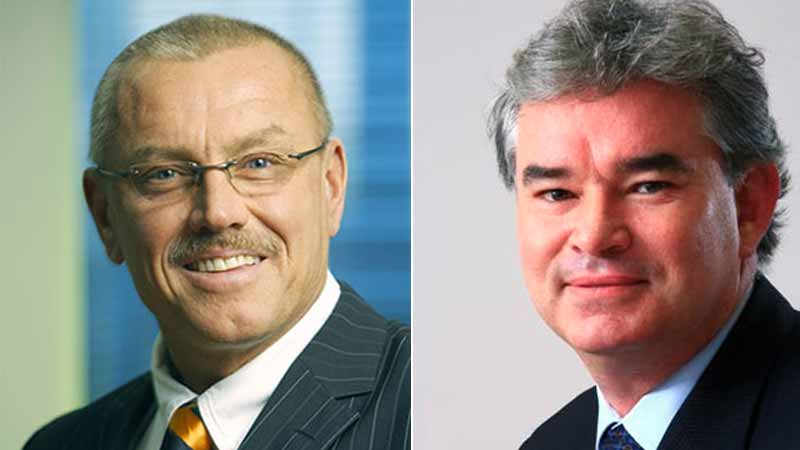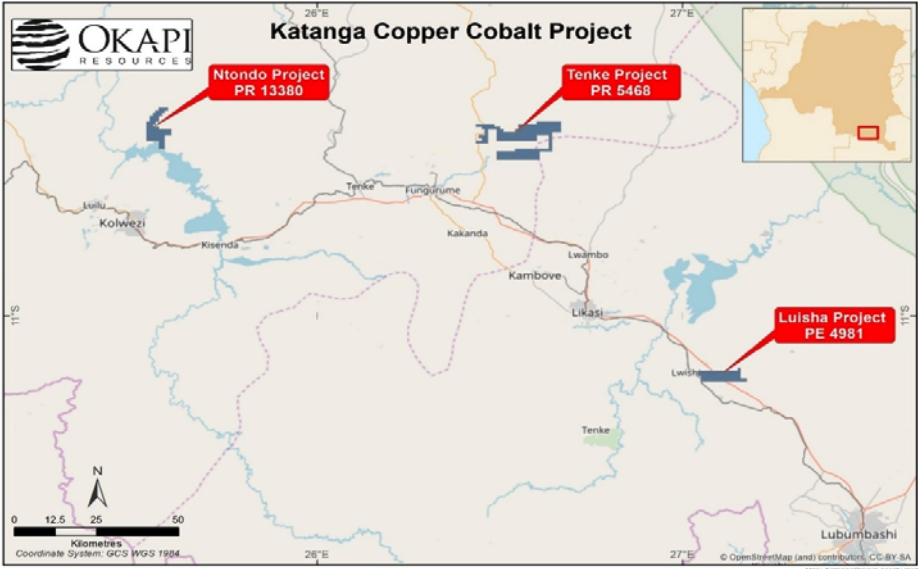Political risk in the Congo is worth it for geological potential, says miner Klaus Eckhof
Mining
Mining
Special report: While other explorers shy away from challenging political circumstances in the Congo, well-known mining exec Klaus Eckhof says the area’s geological potential is worth the risk.
Mr Eckhof and fellow exec Nigel Ferguson (pictured below) have been working in the Democratic Republic of Congo (DRC) for more than 15 years – developing excellent relationships with the local community and all levels of government.
Back in 2003, Mr Eckhof took Moto Goldmines through to 11 million JORC ounces and then sold the company to Rand Gold Resources for some $485 million. (JORC refers to the mining industry’s code for reporting exploration results, mineral resources and ore reserves).
These days the pair is best-known for their parts in market darling AVZ Minerals (ASX:AVZ). But they have multiple base metal and gold plays in the works – the newest of which is Okapi Minerals (ASX:OKR).
Okapi is focused on exploration in the DRC – securing an option agreement to earn a 70 per cent stake in three copper-cobalt projects — Tenke, Ntondo and Luisha — earlier this year.
All are located in the world-renowned Katanga Copper Belt, but are largely unexplored using modern exploration techniques.
Mr Eckhof says he has watched the rise of the Congo – well before the cobalt price passed $90,000 a tonne.
“People talk about political risk in Africa, but the truth is that there is a much lower geological risk,” he told Stockhead.

“If you look at the DRC, no one was there in the early days when I first started and now the junior explorers can’t get enough.”
Cobalt’s spectacular price rise — encouraged by its requirement in electric car batteries — has seen a rush of new interest in the region.
That means competition for junior exploration sites is rife – even Mr Eckhof’s daughter Sheena is director of Taruga Gold (ASX:TAR) which acquired a cobalt play in the region earlier this year.
Most are still in the early stage but looking for the next project the size of Glencore’s Katanga.
The prospect of mining tax increases and seizure from its local partner has scared some investors, but ever-calm Mr Eckhof says it is nothing new.
“Political risk has never been an issue for us — it is the same risk wherever you go. Even in Alaska you can run the risk of losing your licence too,” he told Stockhead.

The southern African cobalt belt is what has all the explorers excited – where grades of up to 2 per cent cobalt are already in production.
“It is all about grade and size – you can have a minimum of 0.5 per cent cobalt at these prices but you just need a decent sized deposit,” he said.
“A higher grade is always going to capture the market and protect you from any price drop eventuality down the track.”
Each of the three Katanga licences under review have excellent geological setting and untested potential for large-scale cobalt and copper mineralisation.
Chip sampling has returned grades of 30 per cent copper to date, but further work at the sites will be the litmus test for the project to go ahead.
With $5 million in the bank, the company is well funded for the exploration planned in the next six months – and with its well-seasoned board of executives there is no shortage of further development opportunities.
“I have been lucky in finding things,” Mr Eckhof says of his track record. “It is all about persistence”.
The duo say they have additional large scale projects under review, sourced from their large network of contacts within Africa.
This special report is brought to you by Okapi Resources.
This advice has been prepared without taking into account your objectives, financial situation or needs. You should, therefore, consider the appropriateness of the advice, in light of your own objectives, financial situation or needs, before acting on the advice.
If this advice relates to the acquisition, or possible acquisition, of a particular financial product, the recipient should obtain a disclosure document, a Product Disclosure Statement or an offer document (PDS) relating to the product and consider the PDS before making any decision about whether to acquire the product.